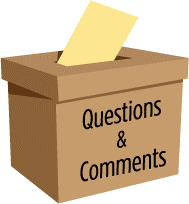Laboratory Services
Over 100 years of service to Montana's Public Health!
The Laboratory Services Bureau partners in the prevention and control of disease and the improvement of community health by providing quality testing in support of environmental and disease assessment and control to programs, health care providers, and the general public at the state and local level.
Testing Guidance for Measles in Montana!
Collect the following specimens as soon as measles is suspected to test for measles infection:
- Respiratory Specimen (Throat, NP, Nasal Swab)
- Serum
Specimen Collection for PCR Testing:
- Collect specimens as soon as possible after appearance of rash, and ideally within 3 days of rash onset. Detection can be possible up to day 10 -14 following onset of
- Respiratory Specimen: Throat, Nasopharyngeal
- Swab: Nasal Dacron swabs in viral transport media
- Consult with Public Health authorities regarding PCR testing prior to rash development of individuals who may have had a recent exposure to measles.
Specimen Collection for IgM Testing:
- For IgM testing, specimens must be collected >48 hours post rash
- Serum: 1 – 2 ml of Can be sent in a spun serum separator tube or can be poured off into a transport tube.
Transport Conditions:
- Keep Respiratory specimens cold, and transport with cold packs as soon as possible following specimen collection. Avoid repeat freeze‐thaw If specimen transport is going to be delayed >72 hours, freeze the sample at ‐70°C and ship on dry ice.
- Serum specimens can be shipped cold (refrigerated) or frozen (preferable for IgM testing).
Additional Notes:
- Isolate suspect measles cases immediately (airborne precautions).
- Only immune healthcare personnel should care for measles patients.
- Report all suspected or confirmed measles cases immediately to your local or state health department.
- Do not wait for lab confirmation before reporting.
Environmental Laboratory, including Water Laboratory Certification
Supervisor: Jill Cohenour, jcohenour@mt.gov, (406) 444-5261
The State Environmental Laboratory provides the following:
- Environmental Laboratory Testing Fee Schedule
- Testing to support the Safe Drinking Water Act
- Consultation and certification services to laboratories who perform Drinking Water Analyses
- Testing for possible human exposure to identified chemical threat agents
- Technical assistance in the areas of analyses selection and results interpretation
Public Health Laboratory, including Newborn Screening
Microbiology Section Supervisor: Michelle Mozer, mmozer@mt.gov, (406) 444-5526
Molecular Diagnostics Section Supervisor: Jaqueline Dixon, jaqueline.dixon@mt.gov, (406) 444-6234
Serology and Newborn Screening Section Supervisor: Jeanne Lee, jlee@mt.gov, (406) 444-3040.
The Public Health Laboratory provides the following:
- Newborn screening, including short term followup, for genetic and metabolic disorders, NCAA sickle cell laboratory test result request
- Online Lab Portal Procedures and Access Forms
- Montana Laboratory Services Manual, including testing for infectious diseases or intentional biologic or chemical threats
- Influenza, Surveillance, and other Guidance Documents
Biological Safety and Packaging and Shipping of Infectious Substances, Division 6.2
Biosafety Officer Crystal Fortune, cfortune@mt.gov, (406) 444-0930
Biosafety guidance includes
- Guidance regarding exposure to biological agents
- Guidance regarding packaging and shipping of infectious substances
- Biosafety and risk assessment for clinical laboratories
Packaging and Shipping Guidance includes classifying, packaging, marking, and labeling laboratory samples according to mode of transport
Laboratory Emergency Preparedness
Laboratory Preparedness Coordinator Kim Newman, knewman@mt.gov, (406) 444-3068
Laboratory Emergency Preparedness provides the following:
- Response to public health emergencies
- Drinking Water Emergency Sampling (DWES) kits if water tampering is suspected
- Collection (CBAT) kits for unknown substance sampling for suspicious substances
- Guidance regarding toxic chemicals and biological agents


